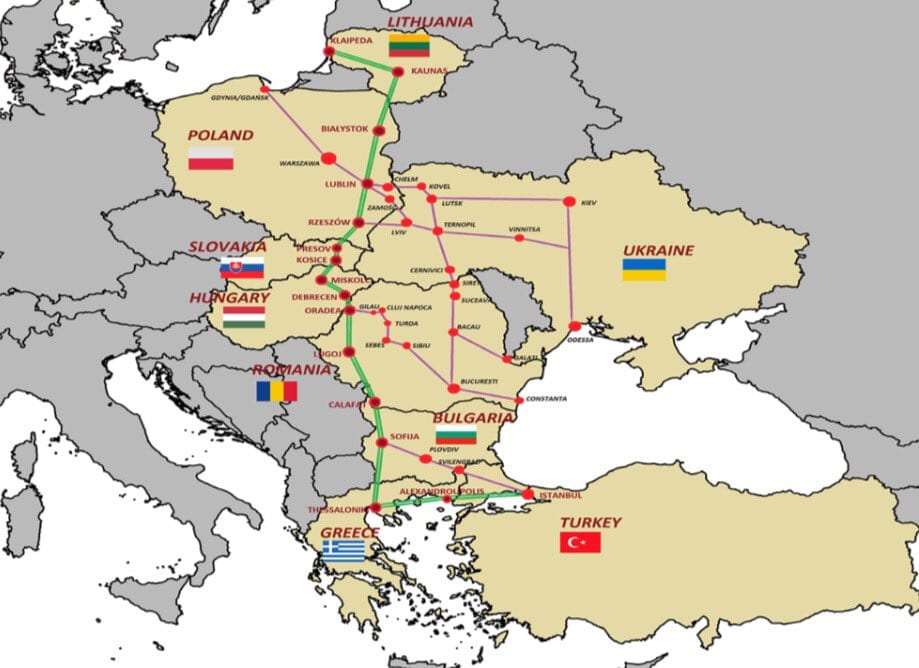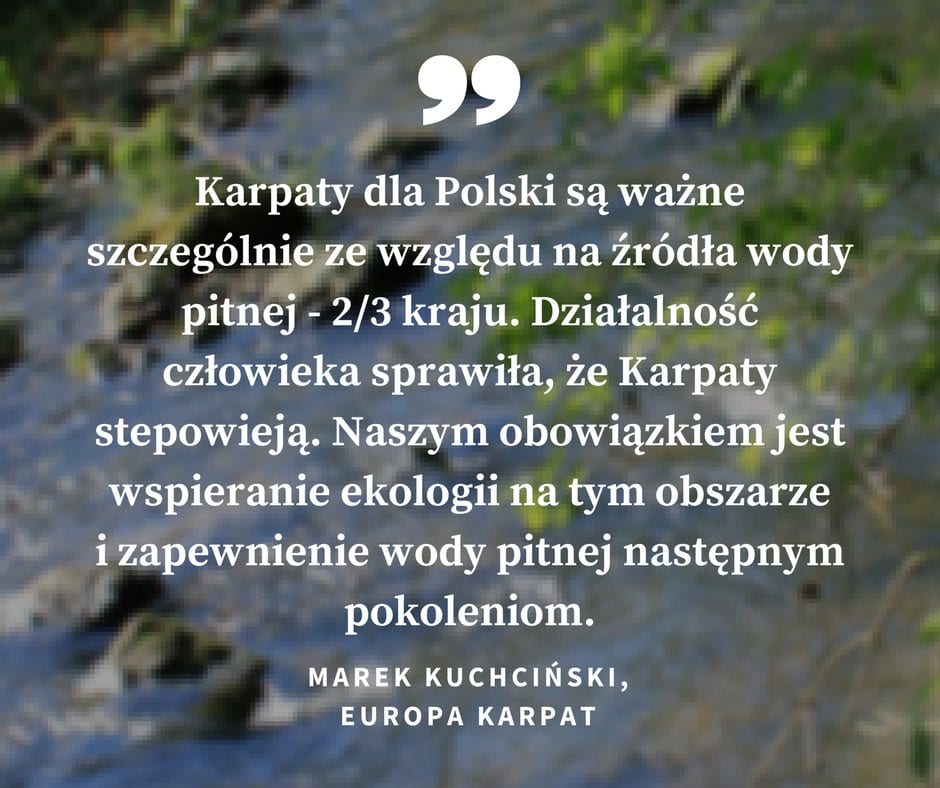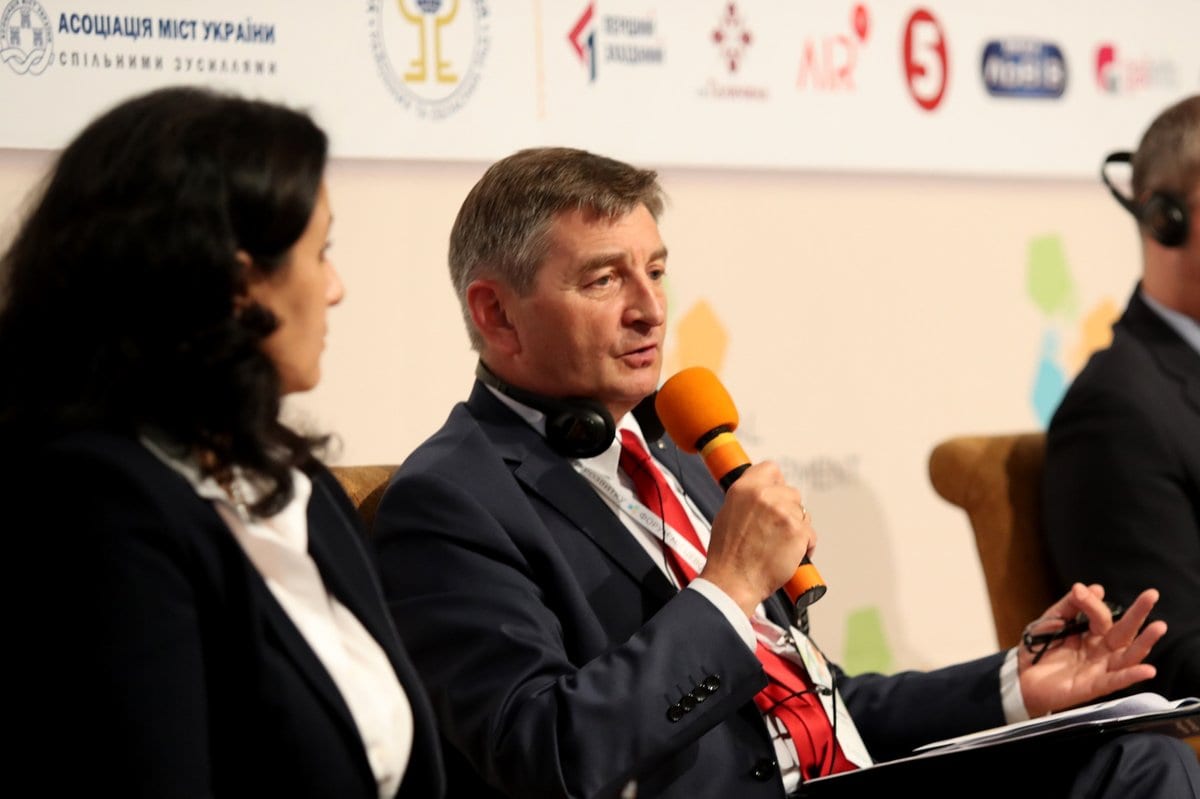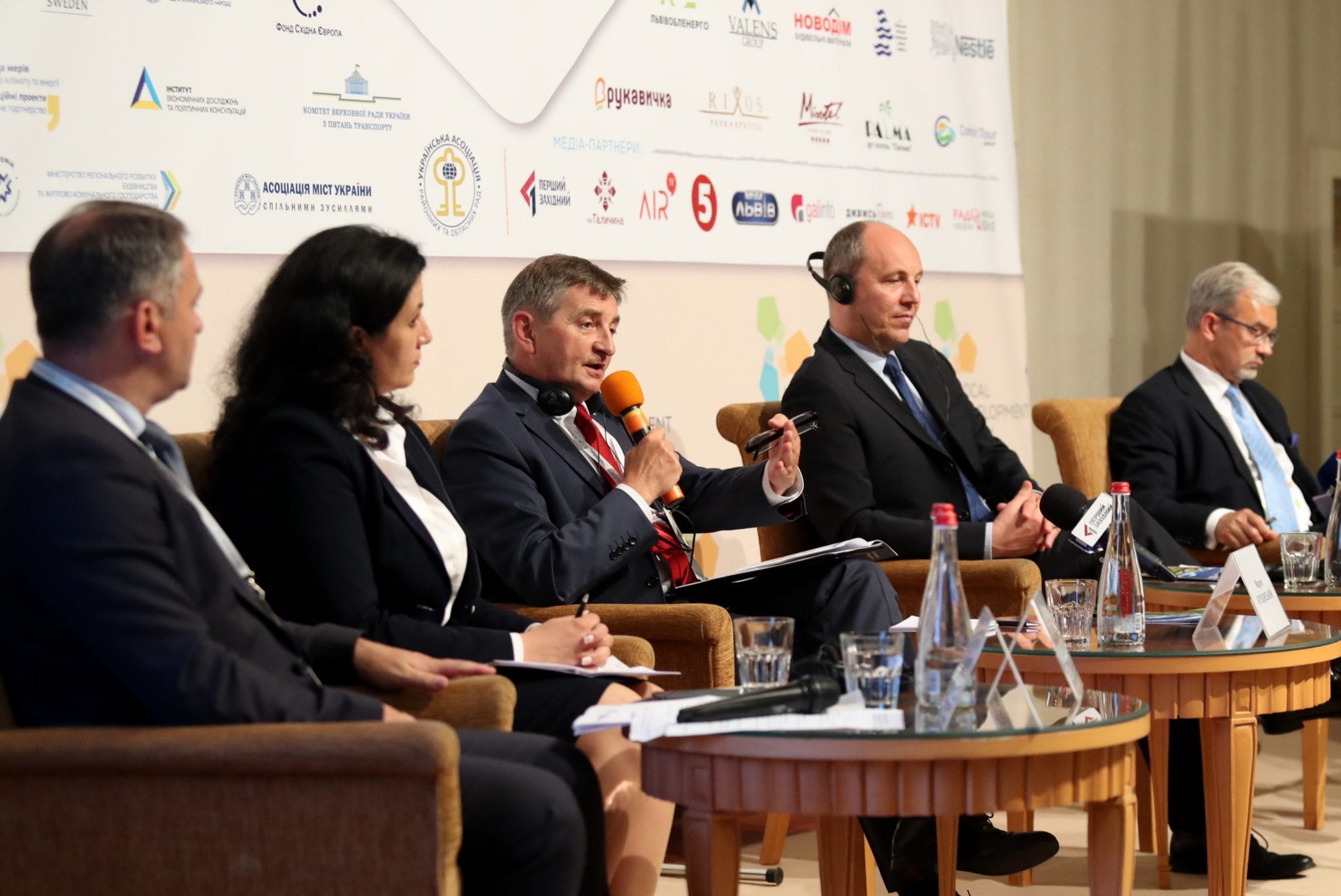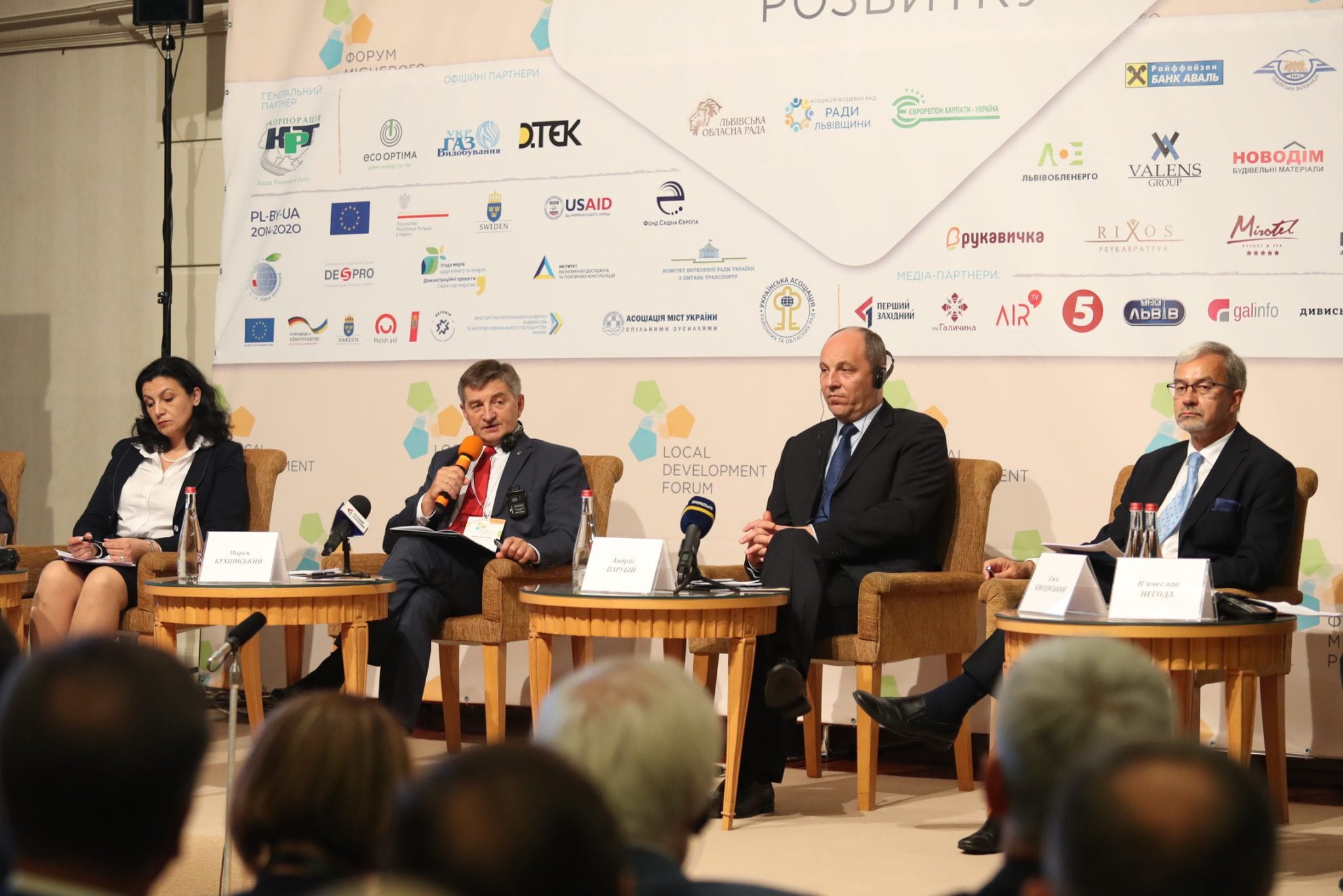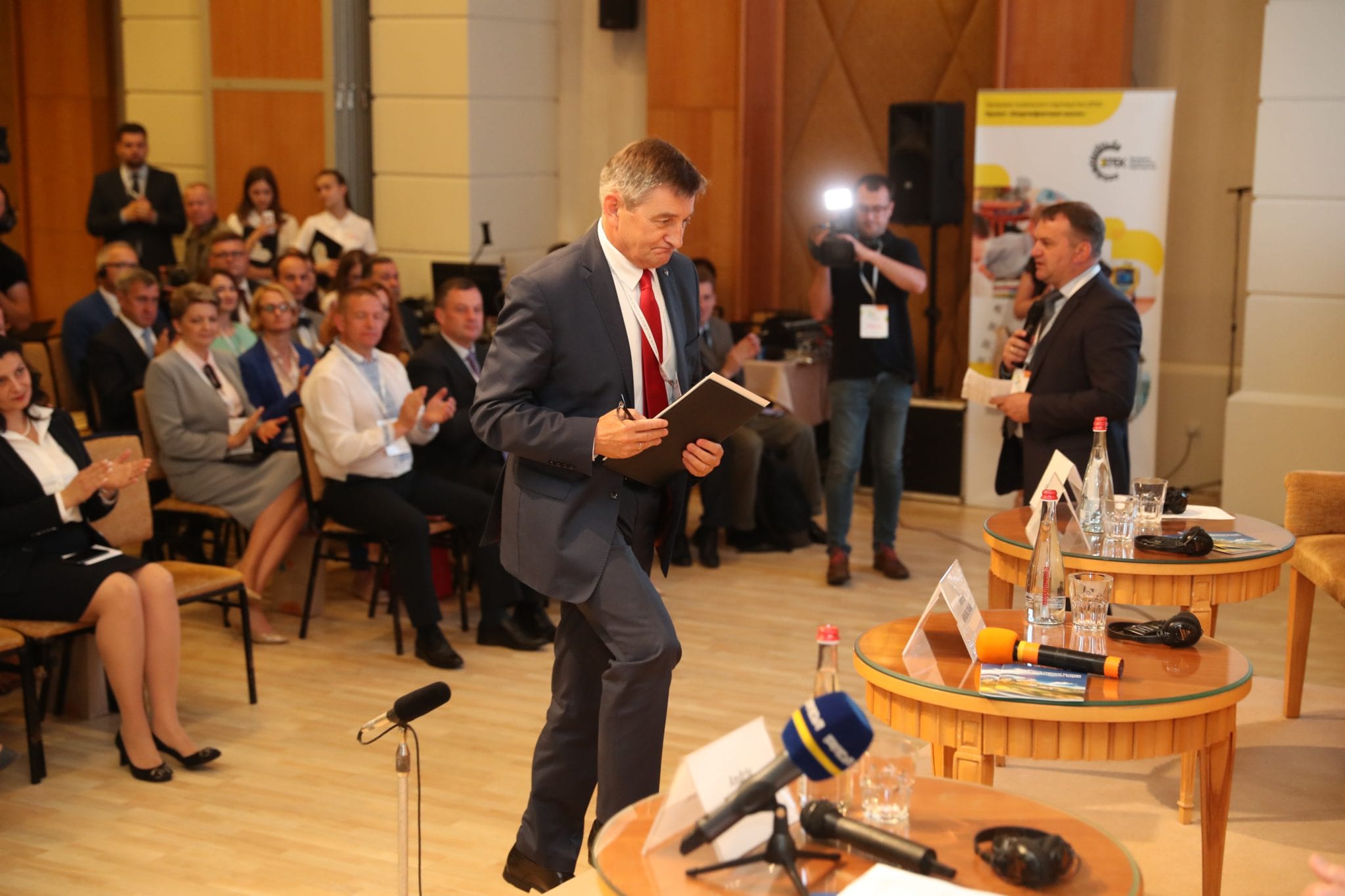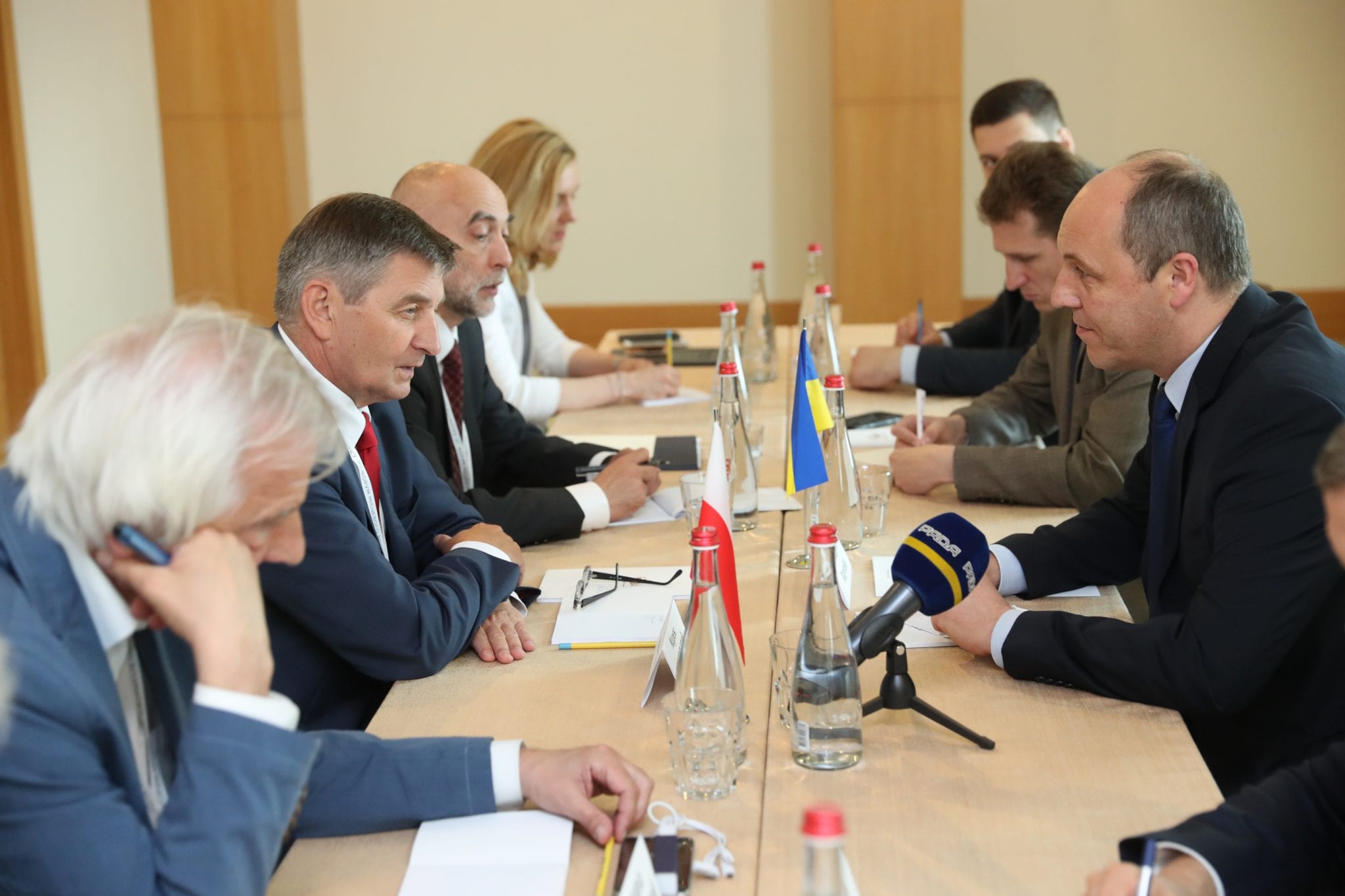Discussion of plans for cooperation in the Carpathian region and restoring the region's importance, as well as discussion of a macro-regional development strategy for this part of Europe - these were the main topics of the 2nd Local Development Forum in Truskawiec, Ukraine. The meeting took place 23-25 June, and the Polish delegation was headed by the Speaker of the Sejm. - Carpathians deserve cooperation and development - emphasized Marek Kuchciński. Apart from Ukrainian and Polish representatives, the PRF was attended by representatives of Romanian and Hungarian governments, local governments and NGOs.
During the plenary discussion on the second day of the Forum (titled "Carpathian macro-regional strategy: can we create a new quality of cooperation in the centre of Europe? During the plenary discussion on the second day of the Forum (titled "Carpathian macro-regional strategy: can we create a new quality of cooperation in the center of Europe") Marek Kuchciński paid attention to the essential role of parliaments in preparing a positive attitude towards cooperation in Central Europe and the Carpathian strategy. The Speaker of the Sejm also spoke about such regional initiatives as the cycle of the Carpathian Europe conferences or cooperation in the Inter-Ministerial Sphere. - We believe that the European Union should expand to the east," Marek Kuchciński pointed out. According to the Speaker of the Sejm, Carpathian Strategy is a very good example of realization of cooperation between the EU countries and the associated countries, outside the Community.
The Speaker noted the importance of the progress made by Ukraine in its relations with the EU. Of great importance for the development of the region is the abolition of visas. As an example he compared the years 1998, when before Poland's accession to the EU 140 million people crossed the Polish-German border through 43 checkpoints, and 2016, when 22 million people crossed the Polish-Ukrainian border through 14 checkpoints.
- Infrastructure is one of the most important areas - emphasized the Speaker of the Sejm, drawing attention to the insufficient number of border crossings on the Polish-Ukrainian border. Marek Kuchciński explained that one of the fundamental goals of the Polish state authorities, representatives in the EP, is to ensure that there are as many border crossings as possible and that the flow of people and goods in both directions is beneficial for everyone. The Speaker of the Sejm also stressed the importance of "soft" diplomacy, i.e. parliamentary diplomacy, which should support and develop the policy of governments and local governments.
According to the Speaker of the Ukrainian Parliament Andriy Parubiy, there is a need for a macro-regional strategy for the Carpathians, such as the Alpine region. - The Carpathians should become a perspective and an opportunity for all inhabitants of the region. The experience of other regional strategies in the European Union should be used here - in the Carpathian region - said the chairman of the Verkhovna Rada of Ukraine.
The benefits of the Carpathian Strategy were presented during the Local Development Forum in Truskawiec by the Deputy Minister of Development Jerzy Kwieciński. As he explained, an example from the last days concerning transport infrastructure is the decision of the Polish government to increase funds for road construction, including Via Carpatia. - It is a route that will be of great importance not only for Poland, but also for the entire region - he assessed.
On the first day of the FRL, the participants discussed the positive and negative sides of decentralization. Deputy Speaker of the Sejm Ryszard Terlecki took part in the debate. - From the Polish and European perspective, decentralization in Ukraine is considered the best implemented, most far-reaching and promising for the future. This builds confidence in Europe that Ukraine is going in the right direction - assessed the Deputy Speaker. According to Ryszard Terlecki a country that faces aggression and defends its sovereignty must be careful because it is easy to cross the border when the state becomes weak and the power of self-government begins to affect the fact that the state loses its resistance to various problems. - A weak state is not immune to corruption, robbery of state property, and various pathologies," he explained.
On Saturday, the Forum was accompanied by a bilateral meeting of the Speaker of the Sejm Marek Kuchciński with the Speaker of the Verkhovna Rada of Ukraine Andriy Parubiy. The talks concerned, among other things, closer parliamentary relations and deepening of regional cooperation, including the possibility of developing cooperation between parliaments in a broader formula in this part of Europe - in the Inter-Ministerial format. Politicians also discussed security issues, including energy security.
In the context of decentralization, Deputy Speaker Terlecki also stressed that the state should be responsible for certain areas of public life - such as external and internal security. - In Poland, we experienced a situation where decentralization hit education, we gave it to local governments and the state lost control over what students learn. The level of education began to fall dramatically - he said. Using Poland as an example, Ryszard Terlecki also pointed out the negative effects of decentralization in the health service.
The Local Development Forum in Truskavets was organized for the second time. The initiators of the Local Development Forum were Lviv Regional Council and Association of Euroregion Carpathians - Ukraine. On behalf of the Sejm, the Forum in Truskawiec was also attended by the following deputies: chairwoman of the Polish-Ukrainian Parliamentary Group Beata Mazurek, Waldemar Andzel, Wojciech Buczak, Lidia Burzyńska, Anna Milczanowska, Jacek Osuch, Bogdan Rzońca, Maria Zuba and Ireneusz Zyska.



